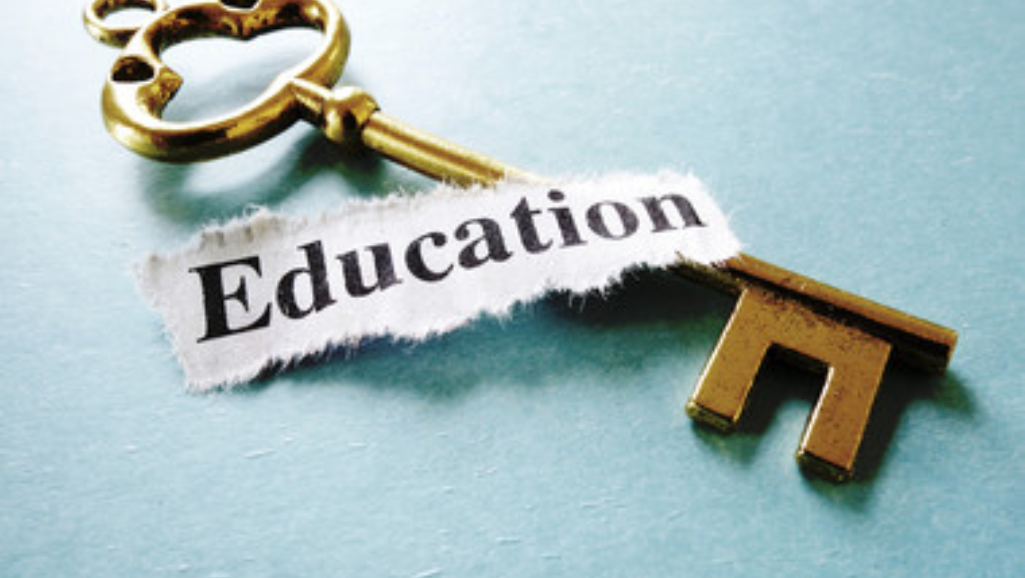Are you curious about how blockchain technology will revolutionize education? Get ready to explore the exciting possibilities as we delve into the disruptive potential of blockchain in the education sector. From enhancing credentialing systems to streamlining administrative processes, blockchain has the power to transform the way we learn and share knowledge. Buckle up and join us on this innovative journey to unlock the future of education with blockchain.
The Basics of Blockchain Technology
If you want to understand the potential impact of blockchain technology on education, it’s essential to grasp the basics of this revolutionary technology. Blockchain is a decentralized and distributed ledger system that allows for secure and transparent transactions without the need for intermediaries. It was originally introduced as the underlying technology for Bitcoin, but its potential applications extend far beyond the realm of cryptocurrencies.
At its core, blockchain is a digital record of transactions or data that is stored across multiple computers or nodes in a network. Each transaction, or block, is linked to the previous one through a cryptographic hash function, creating an immutable chain of information. This distributed nature of blockchain ensures that no single entity has control over the network, making it resistant to censorship and tampering.
Understanding blockchain technology requires familiarity with key concepts such as consensus mechanisms, cryptographic algorithms, and smart contracts. Consensus mechanisms ensure that all participants in the network agree on the state of the blockchain, while cryptographic algorithms provide security and privacy. Smart contracts, on the other hand, are self-executing contracts with the terms of the agreement written into code. They automate the execution of transactions when predefined conditions are met.
Enhancing Credentialing Systems
Blockchain technology has the potential to revolutionize credentialing systems by providing immutable digital records and enabling verification without intermediaries. With blockchain, educational institutions can securely store and share credentials in a decentralized manner, ensuring the authenticity and integrity of the information. By eliminating the need for third-party verification, blockchain simplifies and accelerates the credentialing process, making it more efficient and trustworthy.
Immutable Digital Records
To enhance credentialing systems, you can use blockchain technology to create immutable digital records. By leveraging blockchain, digital certificates can be securely stored and verified, ensuring transparency and eliminating the risk of fraud or tampering. Blockchain provides a decentralized and distributed ledger that allows for the creation of a permanent and unalterable record of educational achievements. This technology enables individuals to have complete control over their credentials, allowing them to share their digital certificates with employers or educational institutions with ease and confidence. The use of blockchain in credentialing systems also enhances educational transparency, as it provides a reliable and auditable source of information regarding an individual’s qualifications and achievements. With immutable digital records, the credentialing process becomes more efficient, secure, and reliable, transforming the way we verify and validate educational accomplishments.
Verification Without Intermediaries
You can enhance credentialing systems by verifying educational achievements without the need for intermediaries. Blockchain revolutionizes the way educational credentials are verified by eliminating middlemen and creating a transparent and secure system. Here are three key ways in which blockchain enhances credentialing systems:
- Trust and Transparency: With blockchain, educational achievements can be recorded on an immutable and transparent ledger, ensuring the authenticity and integrity of the credentials. This eliminates the need for intermediaries, such as traditional certificate authorities, and reduces the risk of fraud or tampering.
- Efficiency and Cost-Effectiveness: Blockchain streamlines the verification process, allowing employers and educational institutions to easily access and verify credentials. This reduces the time and costs associated with manual verification processes and eliminates the need for third-party verification services.
- Ownership and Control: Blockchain enables individuals to have full ownership and control over their educational credentials. They can share their credentials securely and selectively with employers or educational institutions, without relying on intermediaries to facilitate the process.
Ensuring Data Security and Privacy
Ensuring data security and privacy in education is a crucial aspect that needs to be addressed when considering the potential disruption of blockchain technology. With the increasing reliance on digital platforms for educational purposes, protecting sensitive data from unauthorized access and potential breaches has become more important than ever before.
Data encryption plays a vital role in safeguarding educational information. By converting data into a code that can only be deciphered with a specific key, encryption ensures that even if a breach occurs, the data remains unreadable and unusable to unauthorized individuals. This encryption process can be integrated into blockchain networks, providing an additional layer of security to educational data.
Access control is another critical factor in data security and privacy. With blockchain technology, access to educational data can be managed through smart contracts. These contracts can define and enforce specific rules and permissions regarding who can access, modify, and view the data. By implementing access control mechanisms, educational institutions can ensure that only authorized individuals can access and manipulate sensitive information, reducing the risk of unauthorized data exposure.
Facilitating Global and Lifelong Learning
How can blockchain technology facilitate global and lifelong learning? Blockchain has the potential to revolutionize education by enabling global collaboration and personalized learning. Here are three ways in which blockchain can facilitate global and lifelong learning:
- Global Collaboration: Blockchain creates a decentralized and transparent platform that allows students, educators, and institutions from around the world to collaborate seamlessly. By eliminating geographical boundaries and intermediaries, blockchain enables the sharing of educational resources, research, and ideas on a global scale. This fosters a diverse and inclusive learning environment, where individuals can learn from different perspectives and cultures.
- Personalized Learning: Blockchain enables the creation of digital credentials that capture an individual’s skills, achievements, and learning experiences. These credentials can be securely stored on the blockchain and accessed by learners throughout their lives. With blockchain, learners can have complete control over their learning records, allowing them to personalize their educational journey and showcase their unique skills to employers and academic institutions.
- Lifelong Learning: Blockchain technology ensures the immutability and authenticity of educational records, making it easier for learners to validate their qualifications and pursue continuous learning opportunities. By providing a secure and verifiable record of achievements, blockchain encourages individuals to engage in lifelong learning, acquiring new knowledge and skills that are essential in today’s rapidly evolving job market.
Streamlining Administrative Processes
Blockchain technology streamlines administrative processes in education by simplifying record-keeping and enhancing data security. It revolutionizes the traditional methods of managing educational records, improving efficiency, and reducing bureaucracy. With blockchain, educational institutions can securely store and manage student records, certificates, and other important documents. The decentralized nature of blockchain ensures that records are tamper-proof, making it virtually impossible to alter or manipulate data. This eliminates the need for manual verification processes, reducing administrative burden and saving time and resources.
By implementing blockchain, educational institutions can streamline processes such as student enrollment, course registration, and transcript management. These processes can be automated, eliminating the need for repetitive administrative tasks and reducing the chances of errors. Blockchain also enables the creation of smart contracts, which can automatically execute predefined actions when certain conditions are met. This further enhances efficiency by automating tasks such as fee payments, course completion verification, and credential issuance.
Furthermore, blockchain technology allows for seamless interoperability among educational institutions. This means that student records can be easily transferred between institutions, simplifying the process of credit transfer and facilitating lifelong learning. Students can have a comprehensive and immutable record of their educational achievements, making it easier for them to apply for jobs or further education.
Empowering Learners With Ownership and Control
You can enhance the learning experience by giving learners ownership and control over their educational data and credentials through the use of blockchain technology. Blockchain technology provides a decentralized and immutable platform that ensures the security, integrity, and transparency of educational records. Here are three ways in which ownership empowerment and learner control can be achieved:
- Secure Storage and Verification: Blockchain allows learners to store their educational data and credentials in a secure and tamper-proof manner. By utilizing cryptographic techniques, learners can ensure that their records remain private and secure. Additionally, these records can be easily verified by employers, institutions, or any other party, eliminating the need for intermediaries and ensuring trust in the authenticity of the credentials.
- Selective Sharing: With blockchain, learners have the ability to selectively share their educational data and credentials with desired parties. They can grant access to specific records or portions of their educational history, allowing them to maintain control over their personal information while still providing relevant data to employers or educational institutions.
- Lifelong Learning and Microcredentials: Blockchain enables learners to accumulate a digital record of their continuous learning journey. This includes not only traditional degrees and certifications but also microcredentials and badges obtained from various sources. Learners can take control of their lifelong learning by showcasing a comprehensive and up-to-date portfolio of their skills and achievements.
Fostering Collaboration and Peer-to-Peer Learning
To further enhance the learning experience, you can foster collaboration and engage in peer-to-peer learning through the use of blockchain technology. Collaborative platforms powered by blockchain enable learners to connect with each other, share knowledge, and work together on projects in a secure and transparent manner.
Blockchain technology allows for the creation of decentralized assessment systems, where learners can evaluate and provide feedback to their peers. This eliminates the need for centralized authorities to assess and grade assignments, promoting a more inclusive and democratic learning environment. Through peer-to-peer assessment, learners can gain a deeper understanding of the subject matter by critically evaluating the work of their peers and engaging in constructive discussions.
Furthermore, blockchain-based smart contracts can facilitate the creation of learning communities and incentivize collaboration. Smart contracts can define the rules and rewards for collaboration, ensuring that all participants contribute and benefit from the shared knowledge. This encourages active participation and fosters a sense of ownership and responsibility among learners.
Overcoming Challenges and Adoption Barriers
One challenge that may arise when adopting blockchain technology in education is ensuring widespread understanding and acceptance of its potential benefits. Blockchain has the potential to revolutionize education by providing secure and transparent systems for storing and verifying academic records, improving credentialing processes, and enhancing the overall educational experience. However, for the technology to be successfully adopted, several barriers need to be overcome.
- Adapting curriculum: Incorporating blockchain into the education system requires curriculum adjustments to ensure that students are equipped with the necessary knowledge and skills to understand and utilize blockchain technology effectively. This may involve the development of new courses or the integration of blockchain concepts into existing ones.
- Reskilling workforce: Educators and administrators need to be trained in blockchain technology to effectively implement it in educational institutions. This includes understanding the technical aspects of blockchain, its potential applications in education, and how to effectively utilize it in the classroom.
- Addressing skepticism: Blockchain technology is still relatively new and unfamiliar to many in the education sector. As a result, there may be skepticism and resistance to its adoption. Overcoming this challenge requires raising awareness about the potential benefits of blockchain in education and addressing any misconceptions or concerns.



